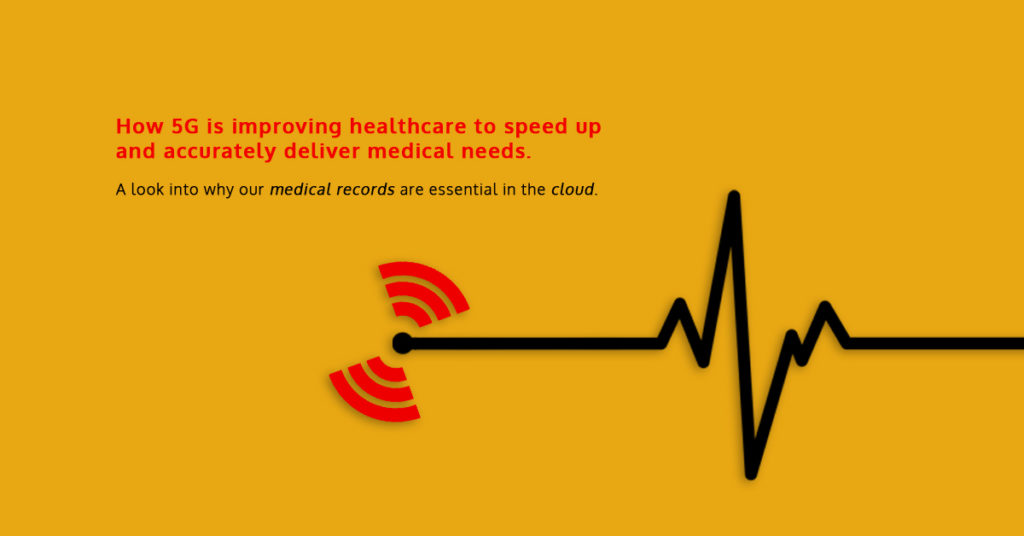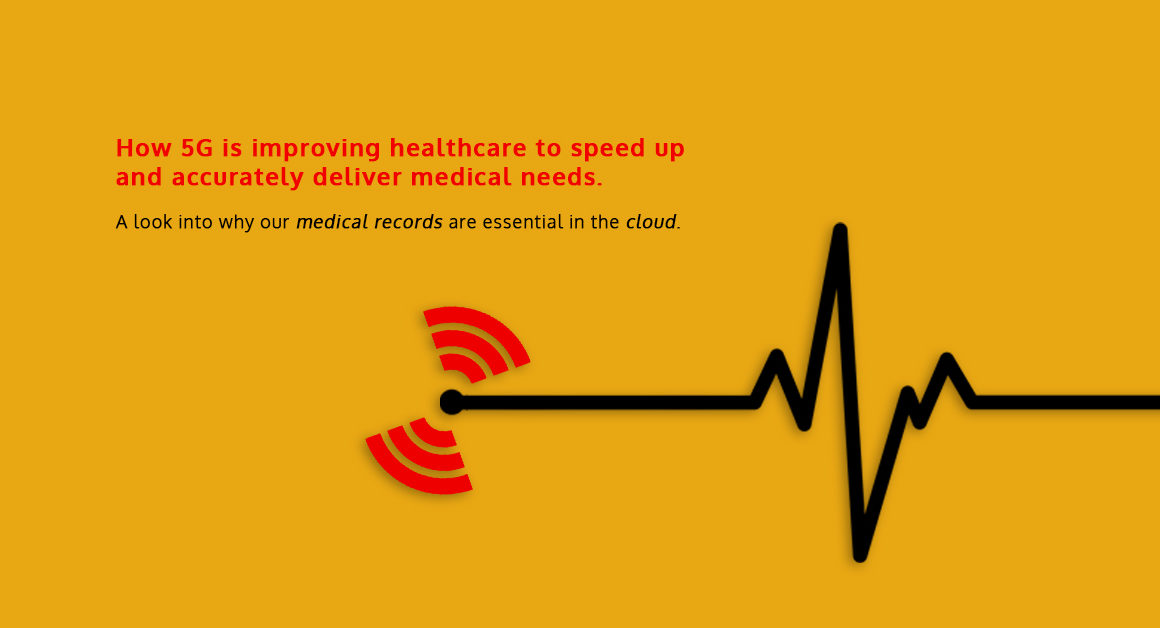Cloud-Based Medical Records Will Be Essential for 5G Healthcare

5G will transform healthcare as we know it. With ultra-fast internet speed, health workers will be able to collaborate in real-time in amazing ways. Imagine what 5G ambulances could potentially do: instantly access a patient’s medical records via the cloud, send vitals to the hospital in commute, or get video feed from an expert surgeon if the patient is too far and needs attention fast.
A big part of creating this real-time health network is cloud storage. Let’s take a closer look at why taking medical records to the cloud will be essential.
Medical records to the cloud
Converting medical records to digital or the cloud for simpler, instant access is a must. A patient can often see several different clinics or medical specialists during a health problem, which means these records ideally need to be shared among them all. Moreover, instant access to complete and updated health records via the cloud could help inform emergency care.
Other health apps and devices
However, it’s not just about transforming these health records to the cloud. Health apps and devices will need to connect to 5G and the data they generate needs a digital home. As health workers growingly use apps and devices in their daily work, these reports will also require cloud support.
A future with health AI
In the future, 5G health may also receive a hand from AI. Health AI could potentially be used to diagnose patients and train health workers. It will need health data to learn from, which means that data stored on the cloud will likely be required to get AI implemented.
Conclusion: Cloud storage is overall beneficial
Cloud storage is overall the best solution for health systems. First and foremost it will likely save lives, as emergency care will be better informed, shared, and updated with medical records on the cloud. In addition, cloud storage can support real-time collaboration and improve health workflow across the board. Of course keeping security in mind also means that confidential patient information will be kept under strong security measures.
Cloud storage doesn’t sound as cool as 5G, but it’s an essential tool for medical records management and supporting future healthcare success.
Interested in learning more about how to convert medical records to electronic? Get in touch with one of our team members to answer your questions.
Consentia is moving workflows digital. We provide document scanning and imaging solutions to convert paper and hard copy documents, records, and papers to digital versions. Located in Edmonton, Alberta, Consentia operates in compliance with:
- FOIP: Freedom of Information and Protection of Privacy Act
- ISMD: Information Security Management Directives to which we are routinely audited by the Alberta Government.
